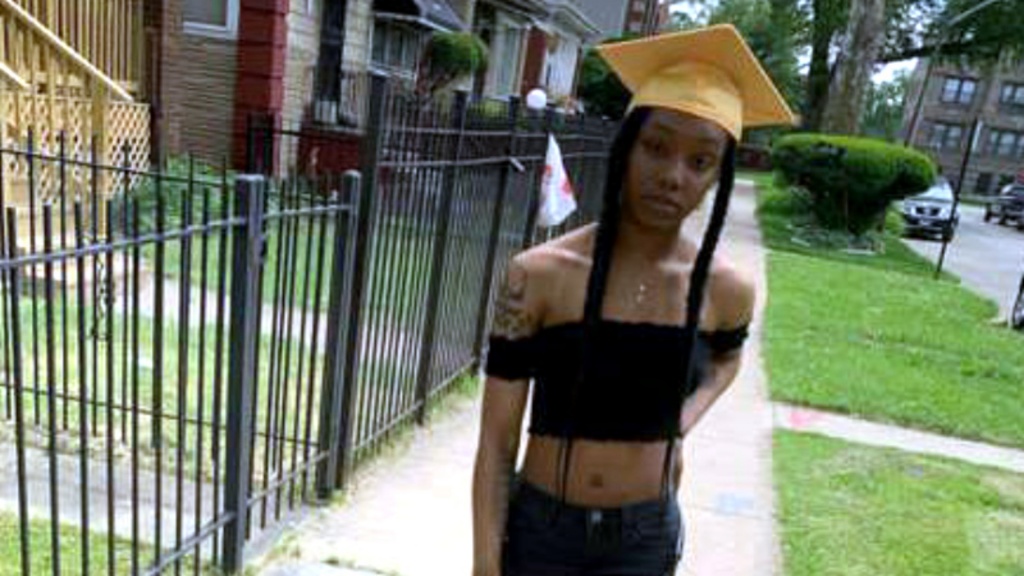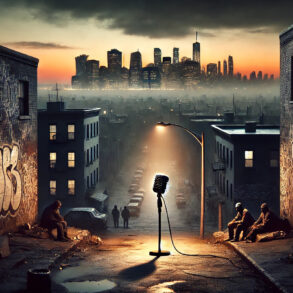From being homeless, to having a father in prison, dealing with literacy issues, and a government who deliberately poisoned her community, nineteen-year-old Flint, Michigan, phenom rapper Armani G proves these pressures only made her a diamond in the ruff.
In the release of her first single Grew Up, teen phenom rapper Armani G takes her listeners on the saga of growing up as a young Black female in the Industrial Midwest.
The once world’s largest car company General Motors was founded in Flint, Michigan, in 1908. But like most of America’s Midwestern industrial towns and cities after World War II, their preeminence as the global powerhouse of durable goods has seen a wicked decline.
No longer does the nickname “The Industrial Midwest” carry any meaning as of 1990 to the end of 2007, the Industrial Midwest saw the deindustrialization of 800,000 jobs. Throw in the 2008 financial malfeasance and bailout of New York’s Wall Street, and another half-a-million jobs were lost from 2008-2010, as a result of the Great Recession. Others have put the job lost at 2-million since the Great Recession.
The aftermath of this kind of deindustrialization of middle class paying jobs saw every single Industrial Midwestern State lose a congressional seat according to the 2020 U.S. census. This kind of wholesale political loss of power is unprecedented in the United States.
Closed factories lead to close hope, and the Industrial Midwest was the epicenter of the opioid crisis. But these are the well written about stories of the region as a whole, but what doesn’t get written about is the region’s last to hire, first to fire, Black population. All across the Midwest, municipalities dealt with their new budget short falls by fining and feeing it’s Black residents. Other policies by Officialdom, like the policy to switch Flint, Michigan’s, drinking water supply, from Detroit’s water system to the poisonous Flint River, has one longtime Flint resident Rev. Ezra L. Tillman Jr. to state he’s not ready to embrace Covid-19 vaccines, “When you tell us that the water is safe but it really wasn’t, that relationship between leadership and the community is still damaged.”
The sad truth as indicated by the City of Flint, as of December 25, 2020, nine thousand nine hundred twelve lead pipes have been removed and supplanted. This is far less than the assessed 18,000 lead pipes in the city’s whole water framework. This is the true ongoing status of Flint, Michigan’s, attempt to solve a problem it created on the back of Black folks in 2014.
But again, these are the kinds of stories that get reported in the news, but who is reporting on the status of the Black girls of the Industrial Midwest? According to K-12 disciplinary data by the U.S. Department of Education in 2017, Midwestern Black girls faced a school suspension nearly double the rate of any other Black girls in the United States, when compared to their white counterparts. While much has been written about the school to prison pipeline by children impacted by an incarcerated parent, these studies rarely, if at all, look at these impacts from a regional standpoint.
HIP HOP’S STORYTELLING IMPACT ON BLIGHT.
Hip Hop emerged directly out of the living conditions in America’s inner cities in the 1970s.
The Historical Roots of Hip Hop | TeachRock https://teachrock.org/lesson/the-historical-roots-of-hip-hop/
For the uninitiated, early rappers were called news reporters. No mainstream American media outlet was reporting on the Hellish conditions America had allowed Her citizens to live under. Take these 1982 lyrics from The Message by Grandmaster Flash and the Furious Five.
Broken glass everywhere
People pissing on the stairs, you know they just don’t care
I can’t take the smell, can’t take the noise
Got no money to move out, I guess, I got no choice
Rats in the front room, roaches in the back
Junkies in the alley with a baseball bat
I tried to get away, but I couldn’t get far
‘Cause the man with the tow-truck repossessed my car
Is that your life? Is this what you see when you wake up every morning? You may not, but people do. And these stories remind ourselves of our Faith based duty to take care of the least among us. Obviously we are not doing it, and for our corporate media hegemonies, reporting on crime, especially Black crime, is a sexier narrative than reporting on Black homelessness.
In Assistant Professor Tara L. Conley’s “Rust: A Black Woman’s Story of Growing Up in Northeast Ohio” | Medium, Conley tells a gripping story of being Black and female in the Midwest, “Black women I know from home have stories that often go unnoticed and untold,” she writes.
Teenage phenom rapper and Flint, Michigan, resident Armani G won’t let her life be a statistic. Fueled by the senseless Black on Black 2019 murder of her younger brother, and a health care system that failed her aunt in 2019, were the catalyst to spur her to pick up a pen, and to carry forward the Hip Hop dreams that her brother dreamt for himself. Her lyrics are poignant with the traumas of an American dream that is the moral equivalent of an American nightmare. Homelessness, an incarcerated father, bullying, and a rap lyric of her having PTSD that is delivered with so much passion, it makes the hairs on a person’s skin stand up.
Armani G in April of 2021 performing at the Crazy Atlanta in Atlanta, George. Sponsored by Coast2Coast Live who flew her in from Michigan, “It was my first performance. I entered a contest to compete in Miami for the grand prize. I competed against 34 other artists; they only chose five and I was one of the five people they chose. It was a good experience, shocked because it was my first performance. I felt like I did it before it was natural.”
In 2019, rap superstar Cardi B blasted on Instagram that it was the purview of Hip Hop bloggers, journalists, and magazines to elevate the voices of female rappers with the kind of rap lyrics she and others were being criticized for not rapping. Cardi B is a huge fan of all female rappers, and vehemently argues it is disingenuous of the High Priests and Priestesses of both Hip Hop and Black culture to hold negative opinions about WAP (Wet Ass Pussy), while blocking through their distribution channels, the female rappers who want the world to see not their bodies, but the world that they see, through the eyes of a Black female in America.
This post was originally published on this site be sure to check out more of their content.





